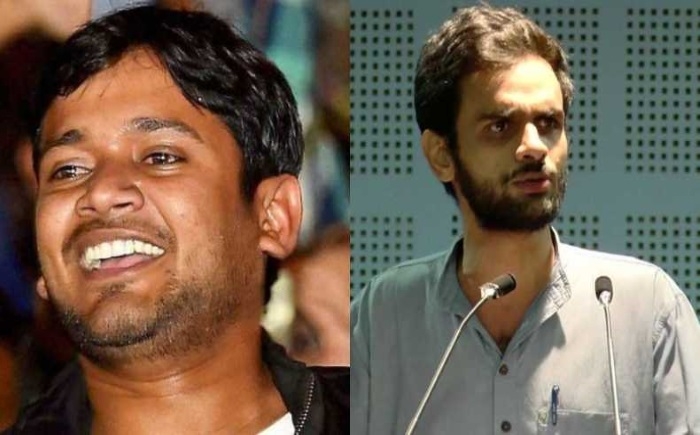The New turn in JNU Sedition Controversy: Delhi Police listed 3 types of evidence
Total Views |

New Delhi, Jan 17: The JNU sedition case taking new twists and turns every day. The 1200 page charge sheet filed by Delhi Police on Monday cited 3 types of evidence against 10 accused including oral, electronic and documentary evidence.
According to a report given by Delhi Police, police found the text message received by Kanhaniya Kumar from Umar Khalid seeking information about the controversial event on Afzal Guru. This message was verified by Forensic lab and listed under the electronic evidence. He was also identified by witnesses in Videos and their statement was recorded under before a magistrate under section 164 CrPC, which is admissible as evidence in court.
Under the documentary evidence, then JNUSU president’s name present in FIR registered by South District police soon after the event. According to the charge sheet, there is no statement of witness against Umar Khalid under section 164 CrPC, but electronic evidence is sufficient.
The Indian Computer Emergency Response Team (CERT-IN) repossessed the pamphlets for the event from his email ID where his name is under the organizer. Khalid also exchanged calls with co-accused Mujeeb Gatto, Muneeb, Umair Gul, Anirban Bhattacharya and Kumar as per records of CDR. In the forensic analysis, it revealed that Khalid forged two signatures.
Bhattacharya was named in charge sheet because police found a pamphlet of the event on this email and presence of him in the video-footage “raising and supporting” anti-national slogans. Bhattacharya's name and signature also found in original proforma for booking of venue for the event.
This charge sheet didn’t mention any documentary evidence against Kashmiri student, Aquib, but corroborative evidence including CDR, mobile location and video footage are present. For other co-accused like Gutto, the evidence of statement recorded under 164 CrPC and mobile location and video footage are present.
According to recent reports, people are raising the question about charge sheet, as Delhi police didn’t seek the state’s approval for the filing of charge sheet. According to law, since the charge sheet has already been filed, the Delhi government is not in the position to give approval for the charge sheets. Delhi police again approached to Government, but If the sanction is not given, the court might raise objections after looking at the content of the charge sheet expected to come for hearing on January 19.
The background of JNU Sedition case:
In the year 2016, on February 9, several JNU students including Umar Khalid, Kanhaiya Kumar, and Anirban Bhattacharya organized a pro-Afzal Guru event in the college campus. During the event, they raised anti-India slogans such as ‘Bharat there Tukde Honge’ and ‘Afzal hum Sharminda hai’.
After this, they all including Umar Khalid, Kanhaiya Kumar, and Anirban Bhattacharya were arrested on sedition charges. The JNU panel consisting of five members in it recommended rustication of Khalid and two other students and imposed a fine of Rs 10,000 on Kanhaiya Kumar. The JNU panel had also imposed a financial penalty on 13 other students for violation of disciplinary norms.
Challenging this, the students had then moved the Delhi high court, which had directed the university to place the matter before an appellate authority to review the panel’s decision. However, the panel upheld its decision in the case of Khalid and Kumar.